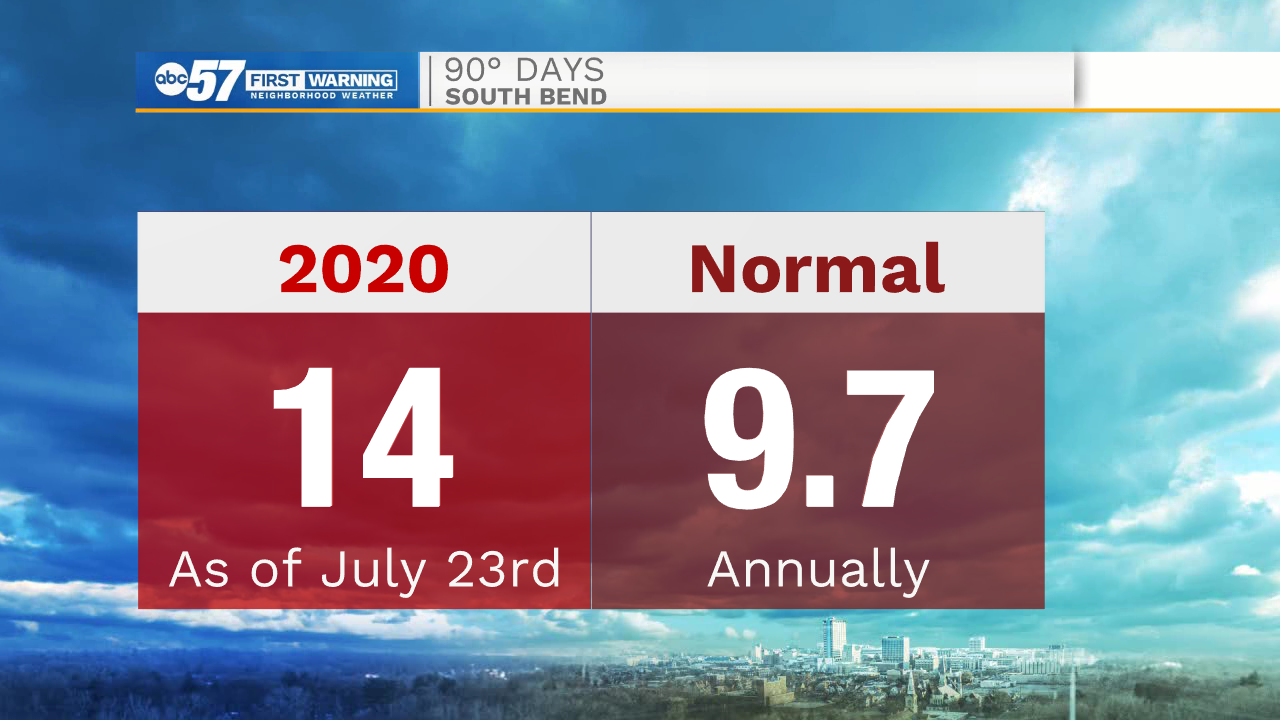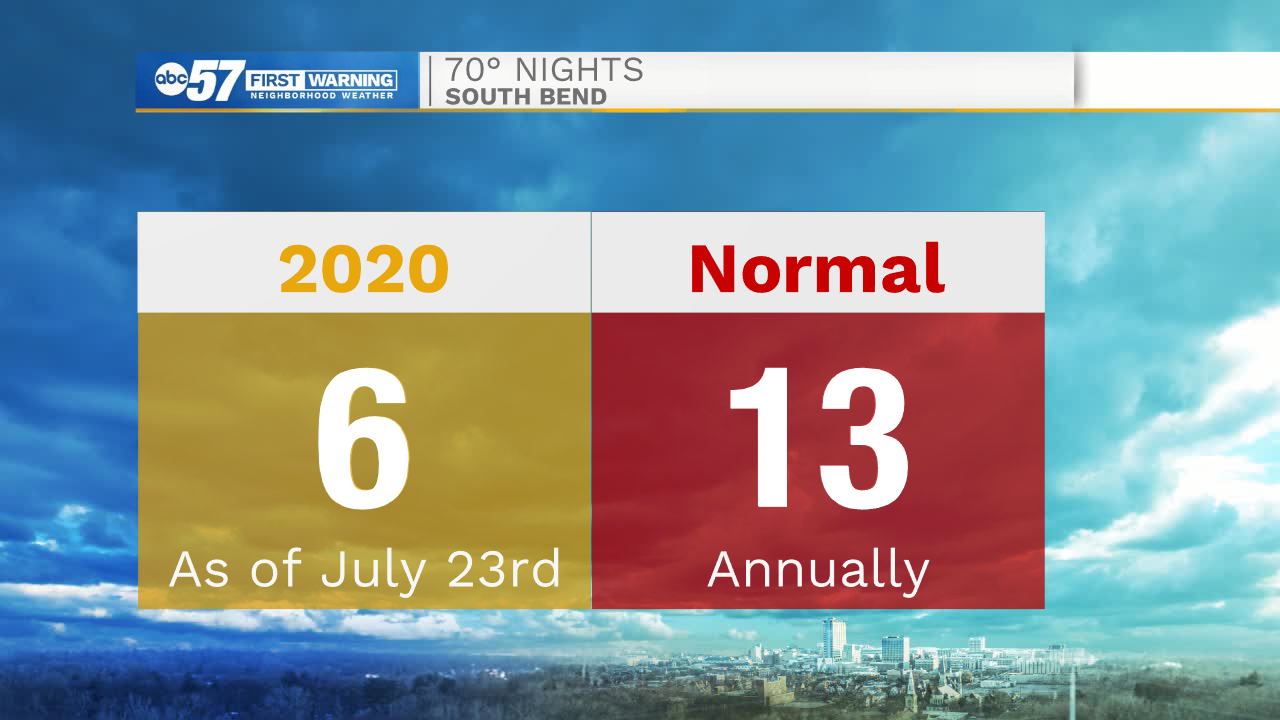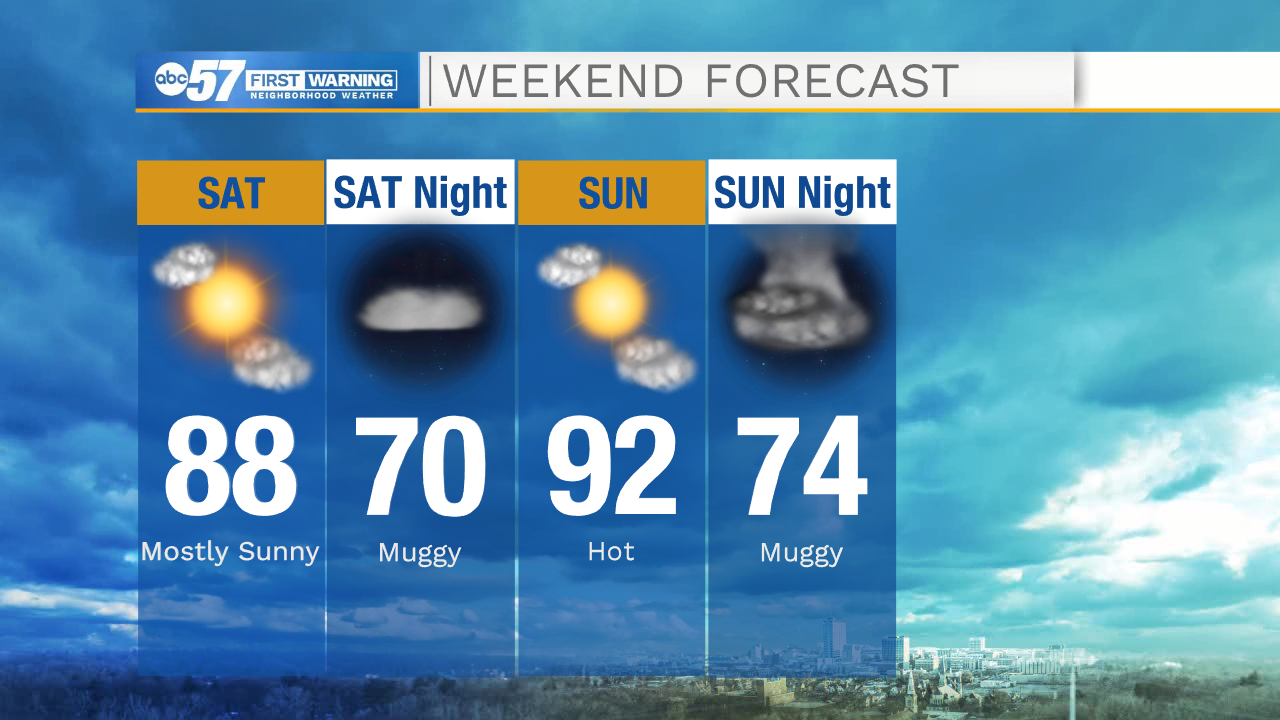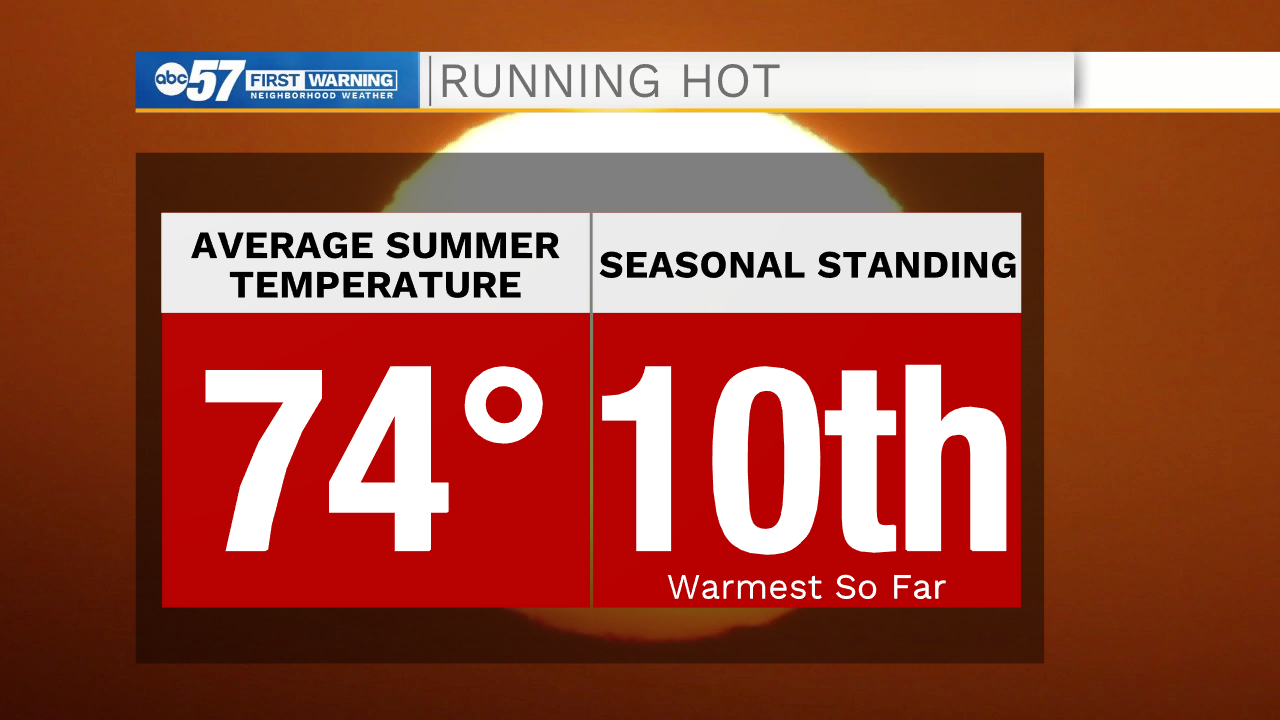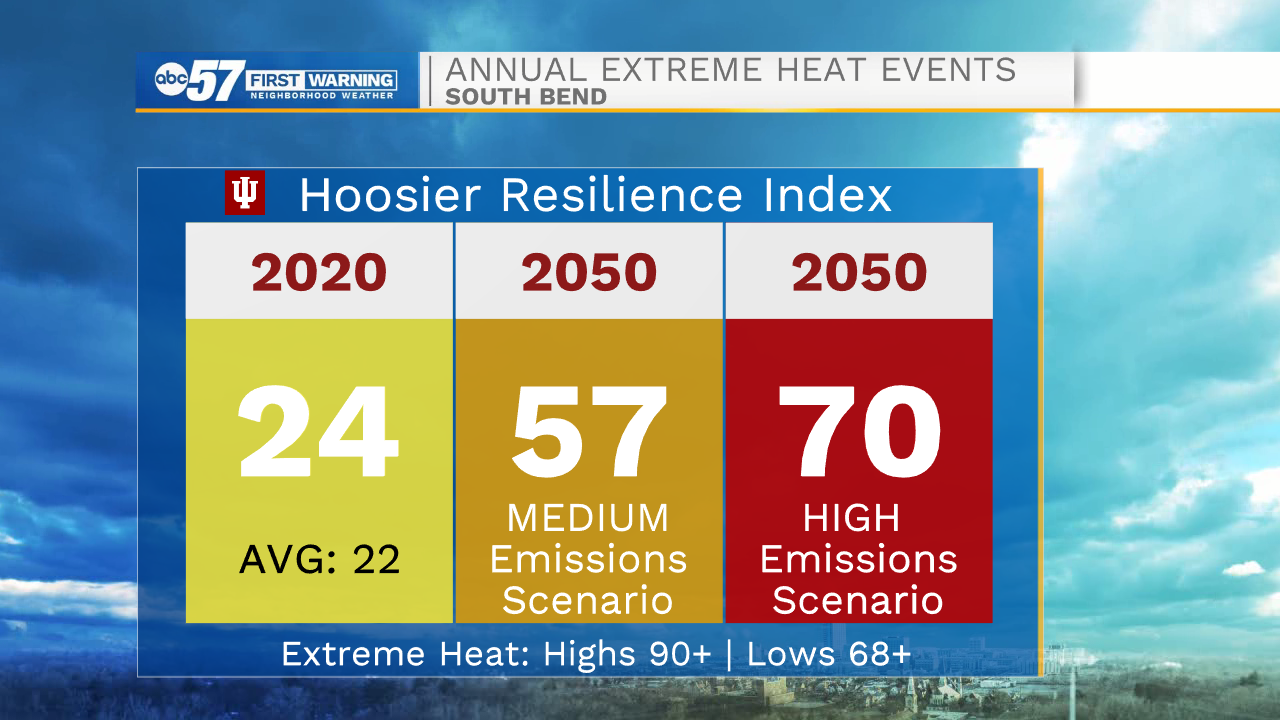As weekend heat looms, future extreme heat events look more likely
South Bend has had its share of hot days so far this summer. The city has recorded 14 days of 90 degree temperatures this year. Historically, our normal amount of 90 degrees days is around 10. 14 days isn't anything crazy, as it's actually fairly close to our recent average. When this number starts to approach 20, then our yearly heat is a bit more significant.
The 90 degree days may make headlines, but the amount of 70 degree nights is arguably more important. It's really difficult for your body to cool down if nighttime temps don't cool below 70. So far, we've had 6 days of 70 degree lows, which is slightly below normal.
We'll add to both of these numbers as we head into the weekend, as highs make it into the 90s on Sunday and low temperatures stay warm into the start of next week.
At this point, 2020 is the 10th warmest summer on record in South Bend.
And, if you think this summer has been hot, climate models don't have good news for you looking ahead 30 years. The amount of extreme heat events (defined as an occurrence of a 90+ degree high temperature, a 68+ degree low temperature, or both) is projected to dramatically increase by 2050. In 30 years, we could potentially have to endure 70+ extreme heat events during a typical summer.
For more background on this index, click here.
So far in 2020, we’ve had 24 instances of “extreme heat.” That number should increase by 2 or 3 by the time next week begins.















